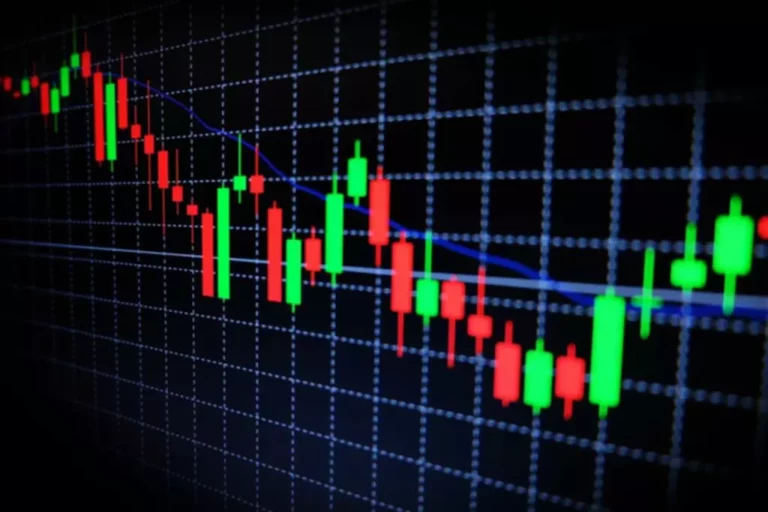This webpage includes info on the rulemakings to implement the Volcker rule, in addition to associated statements and other bulletins on the Volcker rule. After the election of President Joseph Biden in 2020, the model new administration signaled its assist to reverse the Trump era diminutions to the monetary system rules. Although not part of then-President Barack Obama’s authentic proposal for financial overhaul, the Volcker Rule was endorsed by Obama and added to the proposal by Congress in January 2010.

The Treasury also cited regulatory compliance burdens created by the rule and advised simplifying and refining the definitions of proprietary trading and lined funds on prime of softening the regulation to permit banks to extra simply hedge their risks. The Volcker Rule goals to guard bank clients by stopping banks from making certain forms of speculative investments that contributed to the 2007–2008 financial crisis. Essentially, it prohibits banks from utilizing their own accounts for short-term proprietary buying and selling of securities, derivatives, and commodity futures, as well as choices on any of those devices. The Volcker Rule refers to Sec 619 of the Dodd-Frank Act, which prohibits banks from participating in proprietary buying and selling, or from using their depositors’ funds to spend cash on dangerous investment instruments.
Also lined by the Rule are affiliates of FBOs, including affiliated broker-dealers located within the United States or abroad. The proposal requested comment on whether the businesses should exclude from the definition of proprietary buying and selling loan-related swaps between a banking entity and customers which have obtained loans from the banking entity, which have offered a compliance problem notably for smaller non-dealer banking entities that enter into loan-related swaps occasionally. Essentially, it prohibits banks from utilizing their very own accounts (customer funds) for short-term proprietary buying and selling of securities, derivatives, and commodity futures, as nicely as options on any of these instruments. Volcker in the end hoped to reestablish the divide between industrial banking and funding banking—a division that once existed however was legally dissolved by a partial repeal of the Glass-Steagall Act in 1999.
As mentioned in the report, interpretation, and utility of the RENTD requirement requires many buying and selling desk-specific determinations and the flexibility to use crucial new information attributes at the individual commerce level. While these attributes could be retroactively mapped into historical knowledge sets using common reference fields (e.g., product and counterparty related fields), our expertise suggests that doing so introduces considerable data quality issues that undermine the effectiveness of the demonstrable evaluation. Firms ought to be seeking ways to embed the business guidelines and ensuing attributes in their upstream commerce seize and danger measurement processes so that sub-portfolio degree risk exposures aligned with the Volcker Rule requirements are being produced every day inside the production systems of the firms. This strategy maximizes operational integrity and efficiency and gives buying and selling desks the most effective chance to attain the specified steadiness of market-making activities and threat mitigation. The Volcker rule prevents FDIC-insured banks and deposit-taking establishments from acquiring or partnering with hedge funds or non-public equity funds. Using the depositors’ funds to put cash into hedge funds subjects the funds to a high likelihood of incurring losses.
However, this liquidity management exclusion is presently restricted to the acquisition or sale of a safety, and does not prolong to foreign change by-product transactions utilized by a banking entity for liquidity management. The final rule amends this liquidity administration exclusion substantially as proposed, allowing overseas exchange forwards, overseas trade swaps and physically-settled cross-currency swaps, in addition to non-deliverable cross-currency swaps, in every case used by a banking entity in accordance with a documented liquidity management plan as a half of the banking entity’s liquidity management activities. The presumption of compliance for banking entities with restricted trading assets and liabilities could be rebutted by the related agency upon examination or audit, and agencies would have the authority to subject a banking entity with restricted or average buying and selling exercise to the metrics reporting and CEO attestation requirements (to the extent not already subject to such requirements) on a case-by-case basis. Contrary to the proposal, the ultimate rule eliminates the CEO attestation requirement for banking entities without important buying and selling belongings and liabilities (unless in any other case required on a case-by-case basis).
The incontrovertible truth that the worldwide offering includes a 144A tranche sold into the united states mustn’t forestall reliance on the SOTUS Exemption. However, FBOs acting as underwriters within the international tranche should not take part in the 144A tranche and any participation in the us tranche by their U.S. affiliated broker-dealers must be structured as agency transactions or in a way to evolve to the underwriting exemption. Thus, but for the exemptions mentioned beneath, the Volcker Rule would largely restrict broker-dealers affiliated with FBOs to performing as brokers for their customers.
Proprietary Buying And Selling Restrictions
FBOs with substantial U.S. trading property and liabilities shall be topic to certain recordkeeping and reporting obligations. The obligations are applicable if the combined buying and selling assets and liabilities of all the FBO’s U.S. operations exceed the thresholds set forth below. Once subject to the necessities, the FBO will be required to calculate every day varied metrics referring to their proprietary trading exercise. In addition, reviews have to be filed on a quarterly foundation (monthly foundation for FBOs with more than $50 billion in U.S. buying and selling property and liabilities) with the relevant U.S. regulatory companies. Proprietary buying and selling undertaken pursuant to the SOTUS Exemption does not have to be included in such calculations or stories.
The 2013 Rule permits certain international banking entities, topic to a quantity of conditions set forth in the rule, to engage in proprietary buying and selling outdoors of the United States. The last rule removes the situation within the 2013 Rule that no personnel of the foreign banking entity that prepare, negotiate, or execute the acquisition or sale be located in the United States. The final rule additionally eliminates the condition that no financing for the international banking entity’s buy or sale be supplied by any department or affiliate of the banking entity that is positioned within the United States or organized underneath the legal guidelines of the United States or of any state, and the condition that the acquisition or sale not be conducted with or by way of any U.S. entity. In the ultimate rule, nevertheless, the companies determined to not modify the market danger capital prong to incorporate overseas market risk capital frameworks, leaving the market threat capital prong considerably unchanged from the 2013 Rule. Instead, the companies famous that FBOs that are not topic to the market risk capital rule could proceed to use the short-term intent prong to outline their trading accounts, or may elect to use the market risk capital prong in figuring out the scope of its buying and selling account (in which case it might not also be subject to the short-term intent prong). In one of the reviews, released in June 2017, the Treasury stated it recommends vital changes to the Volcker Rule whereas including that it does not help its repeal and “supports in principle” the rule’s limitations on proprietary trading.
In February 2017, then-President Donald Trump signed an executive order directing then-Treasury Secretary Steven Mnuchin to evaluate present financial system laws. Since the chief order, Treasury officials have released multiple reports proposing changes to Dodd-Frank, together with a beneficial proposal to permit banks greater exemptions underneath the Volcker Rule. Commercial banks and proprietary systems might not combine, however loads of other companies are nonetheless looking for high trading talent. For example, Trade The Pool’s Funded Trader Program supplies paper capital to prospective traders for a small upfront charge and then provides instruments, coaching and analysis to maximise profit potential. But keep in mind — solely the top merchants will make it by way of the analysis section into the funded account part. The Volcker Rule was hotly criticized by banks that didn’t want their investment options restricted, but it went into effect in July 2015 and set dates for when banks needed to unwind their riskier trades.
The key questions which are at present being asked and debated relate to the sensible elements of operationalizing this requirement. In January 2021, the Office of the Comptroller of the Currency and the Federal Deposit Insurance Corporation finalized a rule that might allow banks to make investments in venture capital funds with out violating the Volcker Rule, as lengthy as the investments are small and don’t involve taking management of the fund’s management. Before the 2008 monetary crisis, banks engaged in speculative trading utilizing their depositors’ accounts, which led to the collapse of a quantity of banks and loss of depositor funds. The rule was preceded by the Glass-Steagall Act of 1933, which was launched during the Great Depression.

Additional compliance requirements are required of FBOs that have interaction in proprietary buying and selling and have a minimum of $50 billion in U.S. assets or which have interaction in market making and securities distributions. The extra compliance requirements require extra insurance policies and procedures meant to observe and restrict the chance from proprietary buying and selling. For instance, FBOs subject to such extra requirements will be required to implement insurance policies and procedures that specify for every trading desk the applicable mission, approved actions, buying and selling limits and types of prospects and counterparties with whom the desk might commerce. Proprietary trading is defined by the rule as a financial institution serving as a principal of a trading account in shopping for or promoting a financial instrument. The rules increase on the definition of what qualifies as a trading account and whether the trade includes a financial instrument. While the proposal included sure limited proposed revisions to the Volcker Rule’s covered fund provisions, it also sought comments on different elements of the lined fund provisions past those modifications for which specific rule text was proposed.
Rentd: The Guts Of The Volcker Rule
However, the backlash was swift, and many banks instantly began requesting extensions or loopholes to allow some types of riskier buying and selling to happen. Deloitte refers to one or more of Deloitte Touche Tohmatsu Limited, a UK non-public company restricted by assure (“DTTL”), its network of member firms, and their associated entities. In the United States, Deloitte refers to a number of of the US member firms of DTTL, their related entities that function using the “Deloitte” name within the United States and their respective affiliates. Certain companies may not be obtainable to attest shoppers underneath the rules and laws of public accounting.
Federal monetary regulators answerable for implementing the Volcker Rule have issued a final rule to revise a number of provisions of the Volcker Rule’s 2013 implementing rules (the “2013 Rule”). The ultimate rule, which is essentially much like the agencies’ proposed rulemaking issued in June 2018, generally seeks to make clear sure definitions, exemptions and compliance necessities beneath the 2013 Rule, and to tailor compliance requirements to be commensurate with a banking entity’s stage of buying and selling activity. The Volcker Rule is intended to limit high-risk, speculative buying and selling activity by banks, similar to proprietary buying and selling or investing in or sponsoring hedge funds or private equity funds. It maintains banks’ skills to offer important customer-oriented monetary services, similar to underwriting, market making, and asset administration providers. As a outcome, the trading desk’s threat management positions and mixture monetary publicity are also limited by the current and reasonably anticipated near time period demands of customers.
The banks acknowledged that their possession interests in hedge funds and private fairness funds were at risk of dropping substantial value in the occasion that they have been compelled to liquidate them rapidly. The ultimate rule also clarifies that if the banking entity or an affiliate sponsors or serves as the investment supervisor or adviser to a covered fund, then the banking entity or affiliate will be deemed for functions https://www.xcritical.in/ of the advertising restriction to participate in any offer or sale of ownership pursuits within the coated fund. The Volcker Rule and the 2013 Rule allow a overseas banking entity to acquire or retain an ownership interest in, or sponsor, a coated fund if these investments and activities occur solely outdoors of the United States (“SOTUS”) and certain different conditions are met.

The Volcker Rule is called after economist and former Federal Reserve (Fed) Chair Paul Volcker, who died on Dec. 8, 2019, at age ninety two. The Volcker Rule refers to section 619 of the Dodd-Frank Wall Street Reform and Consumer Protection Act of 2010, which sets forth guidelines for implementing section 13 of the Bank Holding Company Act of 1956.
Program On Corporate Governance Advisory Board
A time line for any proposed revisions to take effect stays unclear, although it would actually take months or years. In June 2020, financial institution regulators loosened one of the Volcker Rule provisions to allow lenders to put cash into venture capital funds and other belongings. The requirement to investigate and calculate moderately expected near-term demand (RENTD) of shoppers, prospects, and counterparties (CCCs) is probably certainly one of the most advanced aspects of the final regulation implementing the Volcker Rule. Considerable attention and debate about RENTD has occurred within the two-plus years since the Volcker Rule became efficient, culminating in a sequence of Volcker related suggestions in the US Treasury Department’s just lately issued report on rules governing banks and credit unions. Included inside the report have been suggestions particularly directed on the RENTD assemble as an obstacle to banks having adequate flexibility to be efficient market-makers and consequently as an necessary factor leading to meaningfully lower levels of liquidity within the secondary capital markets.
- If a banking entity avails itself of the underwriting exemption, it should comply with a extensive range of extra requirements.
- The 2013 Rule contains various exclusions and exemptions from the scope of prohibited proprietary buying and selling.
- While these attributes can be retroactively mapped into historic data sets using frequent reference fields (e.g., product and counterparty associated fields), our experience means that doing so introduces considerable information quality issues that undermine the effectiveness of the demonstrable analysis.
- The ultimate rule additionally clarifies that if the banking entity or an affiliate sponsors or serves as the funding manager or adviser to a coated fund, then the banking entity or affiliate might be deemed for purposes of the marketing restriction to participate in any offer or sale of possession interests in the lined fund.
Proprietary buying and selling methods have been to be shuttered, and risky bets using derivatives like collateral debt obligations (CDOs) were to be unwound. Additionally, bank investments with hedge funds and personal equity had been to be restricted or prohibited altogether. Subsequent to the issuance of the Treasury’s report, on August 2, 2017, the Office of the Comptroller of the Currency (OCC) issued a discover and request for touch upon whether sure elements of the regulation implementing the Volcker Rule should be revised to “better accomplish the needs of the statute,” while lowering the compliance burden on banking entities and fostering financial growth. The OCC is looking for touch upon quite lots of subjects, together with about in search of input on streamlining and simplifying present exclusions and exemptions and specific questions on whether the concept of the Market Maker Inventory (MMI) was a helpful approach to figuring out whether or not trading desk market-making activities had been acceptable. Within the context of the present reexamination of the Volcker Rule and how it could be probably modified, this paper provides thoughts on conceptual and operational challenges associated to market-making RENTD and the associated limits. The Volcker Rule applies to all banking entities, which are defined to include international banking organizations which have U.S. branches or businesses or which personal U.S. banks or certain other U.S. subsidiaries (“FBOs”).
Covered Fund Provisions Presumably Topic To Future Proposals
The Rule units forth a basic prohibition on “proprietary trading”, which is defined as participating as principal in the buy or sale of monetary devices for a buying and selling account of a banking entity. “Proprietary trading” does not include transactions undertaken on an agency basis.[1] “Financial instruments” include securities, derivatives and commodity futures contracts.[2] Loans and international exchange aren’t included inside the definition. “Trading account” is outlined to cowl transactions effected by a securities vendor affiliated with a banking entity or transactions by a bank or any affiliate if the purpose is to commerce for short-term achieve or for hedging or arbitrage purposes. If a banking entity avails itself of the underwriting exemption, it should comply with a broad range of extra necessities. For example, the banking entity’s place in the securities which are the topic of the distribution should not exceed “the moderately expected close to time period calls for of shoppers, customers, or counterparties….” Forecasting “near term demands” have to be primarily based on its expertise with similar offerings, its information of market situations and similar inputs.
The Volcker Rule’s origins date again to 2009, when economist and former Federal Reserve (Fed) Chair Paul Volcker proposed a chunk of regulation in response to the ongoing financial crisis (and after the nation’s largest banks accumulated giant losses from their proprietary buying and selling arms). The goal was to protect financial institution customers by preventing banks from making sure forms of speculative investments that contributed to the disaster. Depending on their size, banks must meet various levels of reporting necessities to reveal details of their covered trading activities to the federal government. Larger institutions should implement a program to ensure compliance with the brand new guidelines, and their packages are topic to impartial testing and evaluation.
While such buying and selling practices might proceed for trades effected on an company foundation, the Volcker Rule prohibits FBOs from effecting such trades on a principal basis via their affiliated U.S. broker-dealers. This might cut back the enterprise of such affiliated broker-dealers and complicate the ability of U.S. institutional buyers to commerce in foreign securities, contrary what is prop trading to the rationale of SEC Rule 15a-6. The ultimate rule additionally eliminates the requirement that no financing be offered by any branch or affiliate positioned in the United States or organized beneath the laws of the United States or of any state for a banking entity’s ownership or sponsorship of a coated fund in reliance on the SOTUS exemption.

